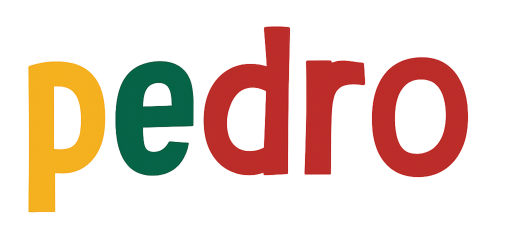


Pedro’s STEM lessons provide teachers with a complete framework to guide students using hands-on, engaging project.

Pedro is a fully open-source, 3D-printable, portable educational robot designed for learning robotics, electronics, and programming. Pedro empowers students, makers, and educators to explore STEM hands-on. As an open-source project, the entire Pedro ecosystem is available on GitHub. Each Pedro repository serves a specific role within the ecosystem:
📂 Pedro
🖨️ 3D printing resources STL files and assembly instructions.
📂 Pedro Board
⚡ Hardware design Gerber files, schematics, and PCB layouts for the controller board.
📂 Pedro Robot
💻 Firmware Arduino source code and library to program and control the Pedro robot.
📂 Pedro STEM
🎓 Education STEM lessons, activities, and teaching material using the Pedro for schools.








Thanks to its integrated modules, Pedro offers an intuitive way to explore various communication modes, such as radio, Bluetooth, USB serial, as well as normal, record, and replay modes. The STEM lessons provide a deeper dive into these communication modes, covering key concepts such as encoding/decoding, and communication protocols.
The open-source code, available on GitHub, allows anyone to discover and master the different control modes of Pedro.

Control Pedro via buttons connected directly to the board.

Use wireless remotes connection with the nRF24L01 module to send commands and control Pedro.

Pair Pedro with a smartphone using the HC-05 module. Control it via custom apps or terminal commands.
Pedro began in 2016 as a simple DIY robotic arm 3D-printed, powered by an ATmega328, and assembled with screws and a screwdriver. It was fully open-source from day one, designed to make robotics accessible to everyone.
The very first Pedro robot was born built using 3D-printed parts and a simplified electronics board designed for students and makers. Pedro took its first steps toward making robotics education more accessible.
MOREPedro won the My Innovation in 120 Seconds competition thanks to its impact during educational workshops. Recognized for its simplicity and innovation in teaching STEM.
moreIn March 2025, Pedro’s vision came to life through a successful Kickstarter campaign reaching 268% of its funding goal.
MORE Bring hands-on STEM education to your classroom with Pedro. Pedro helps students discover robotics, electronics, programming, and 3D printing in a fun and accessible way. No tools, no complexity just creativity and learning in action!
Interested in bringing Pedro to your school?



Pedro is fully open-source hardware, software, and 3D files. Making it ideal for learning, modifying, and sharing in educational environments. Full documentation & files available on the Pedro GitHub page.
Pedro runs on a rechargeable 7.4V battery and supports multiple wireless modes: Bluetooth, Wi-Fi, and RF perfect for classroom mobility.
All mechanical parts can be 3D printed with standard FDM printers, making it cost-effective and reproducible anywhere.
From hardware add-ons to code modifications, Pedro grows with your projects. Ideal for introducing students to real-world prototyping.
Pedro is designed to snap together without screws or tools perfect for younger learners and fast classroom setup.
Pedro is Arduino-compatible and supports block-based or code-based learning ideal for all skill levels.
Pedro is an open-source, 3D-printable educational robot designed for learning robotics, electronics, and programming without the need for tools or prior experience.
Pedro is designed for schools, training centers, STEM programs, makerspaces, and individual learners. It's perfect for students, educators, and beginners in robotics.
No! Pedro is designed to be assembled without any screws or tools. All components snap together easily, making it safe and fast to build ideal for classroom use.
Yes. Pedro is 100% open-source and officially certified by the Open Source Hardware Association (OSHWA – UID: FR000025 ). You can access and modify the hardware, software, and 3D files freely.
You can control Pedro remotely via Bluetooth, Wi-Fi, or RF. It can be used for programming lessons, robotics experiments, IoT projects, or simply for fun!
Pedro is compatible with the Arduino platform. You can program it using the Arduino IDE, or via graphical programming tools like Scratch or Blockly for beginners.
Yes. All STL files are available. Pedro is designed to be printed with standard desktop 3D printers using PLA or PETG.
Absolutely. Pedro is built with education in mind it's safe, reusable, repairable, and flexible for various STEM curricula and workshop formats.
You can contact us directly to purchase your Pedro kits. Pedro kits are available for classroom workshops, and special pricing is offered for educators and bulk classroom orders.
Yes, we offer worldwide shipping. For schools and organizations in Africa, Europe, and beyond, please contact us for regional support or bulk order assistance.



